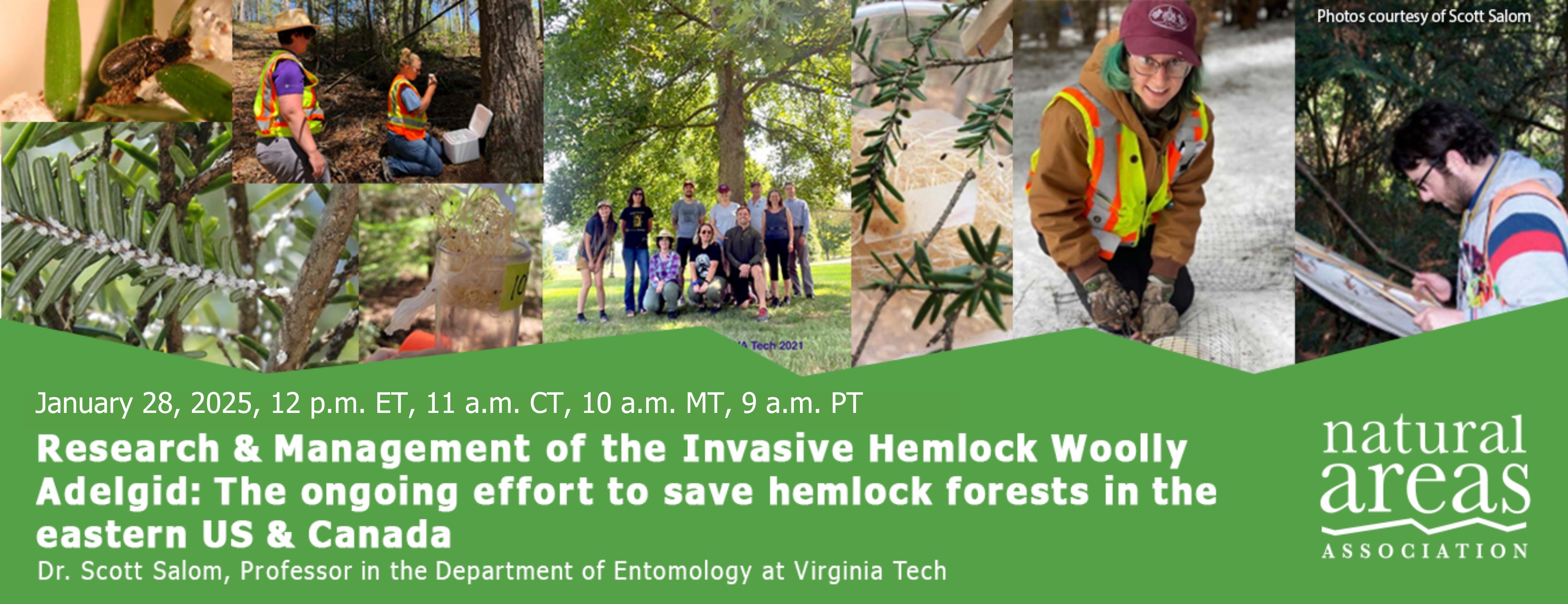
Once the introduced hemlock woolly adelgid had spread into natural forest stands over 40 years ago, it has literally changed the landscape of eastern forests in the US. Significant research has gone into studying the insect’s biology, its impacts, and the development of short- and long-term management tools/strategies. This insect has been challenging to address, and we have made excellent progress on several fronts. In today’s presentation we will cover the problem caused by HWA, the research that has gone into development of management strategies, and the prospects for the future of hemlocks in eastern North America.

Dr. Scott Salom, Professor in the Department of Entomology at Virginia Tech
After receiving degrees in forestry (B.S. @ Iowa State Univ and Ph.D. @ University of British Columbia) and entomology (M.S. @ Univ of Arkansas), Dr. Salom was hired as a forest entomologist by Virginia Tech. He was introduced to the problem of HWA 30 years ago, and has been studying this insect and system consistently since that time. A majority of the focus has been on searching for, importing, studying, and releasing natural enemies for HWA. He and his lab were responsible for introducing both Laricobius beetle species into eastern North America. His lab is now also actively studying and releasing Leucotaraxis silver flies, working in conjunction with the HWA Biocontrol Lab at Cornell University.
Support the people who manage our natural areas and protect biodiversity in perpetuity.